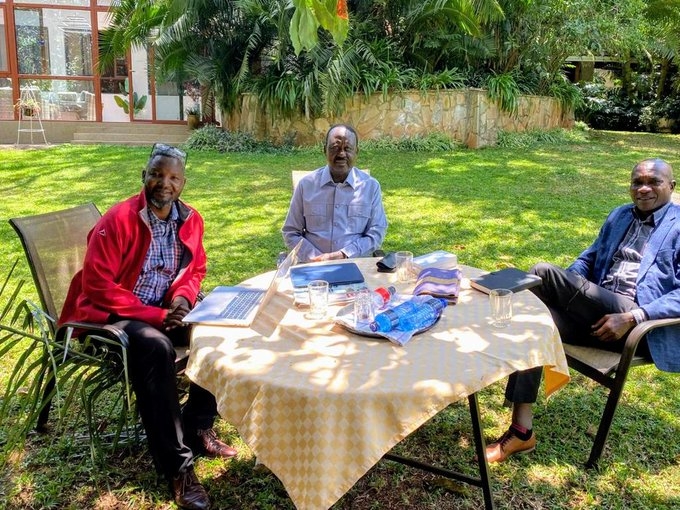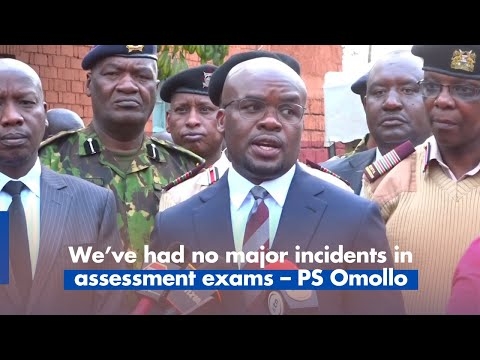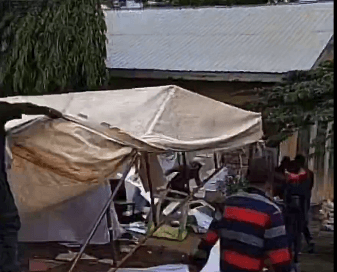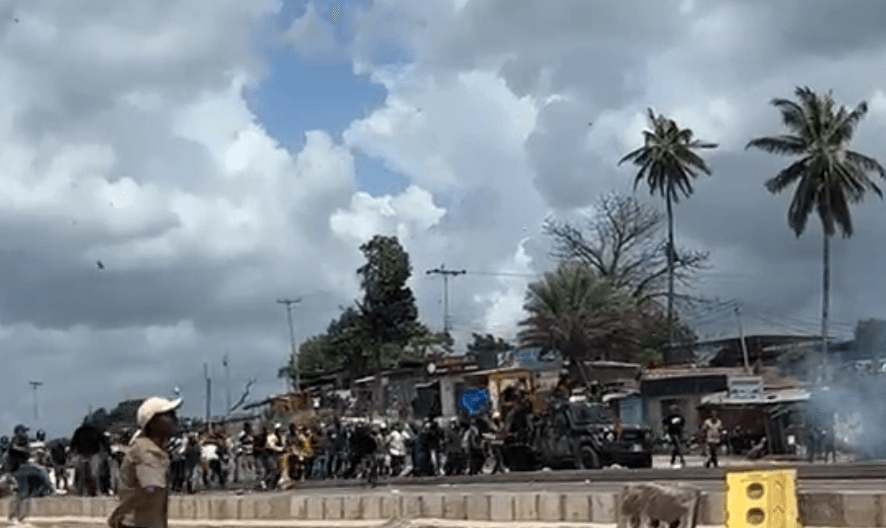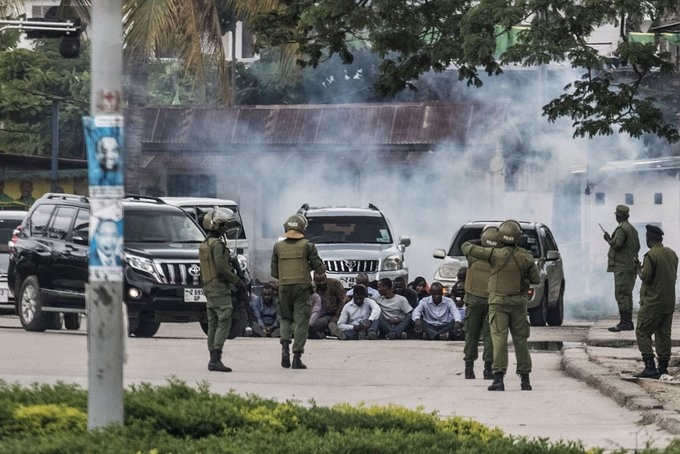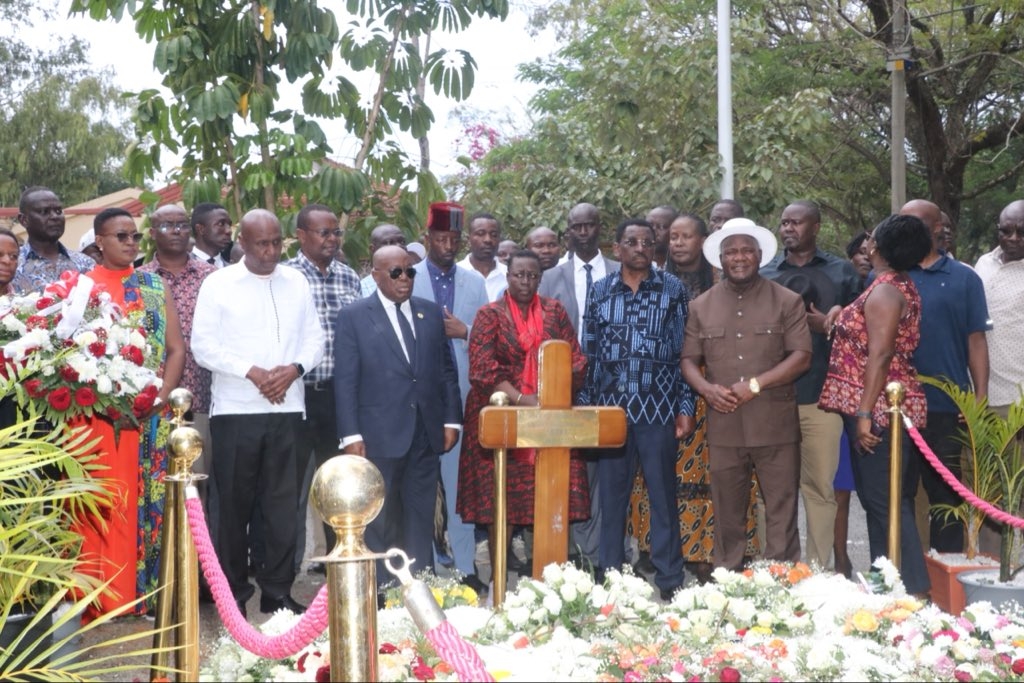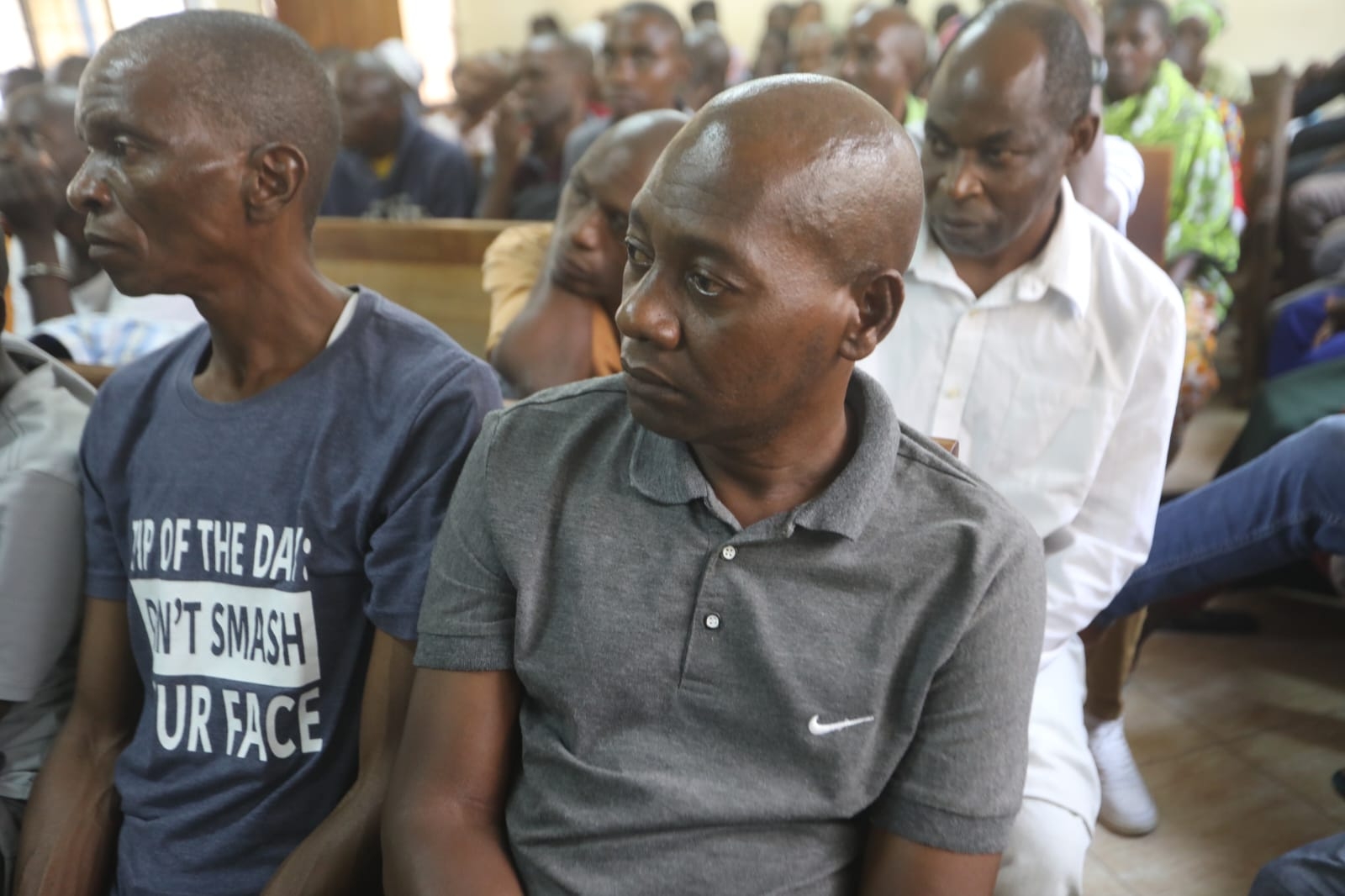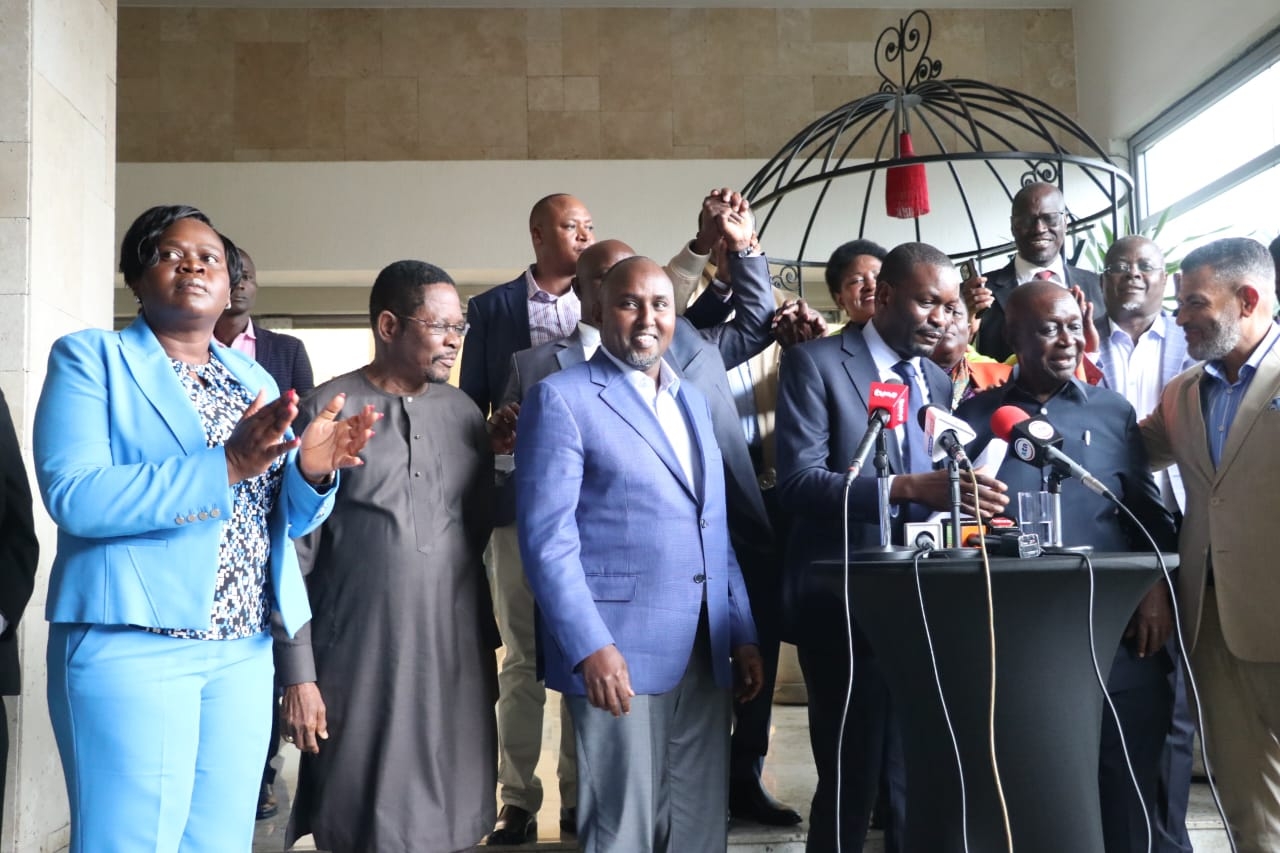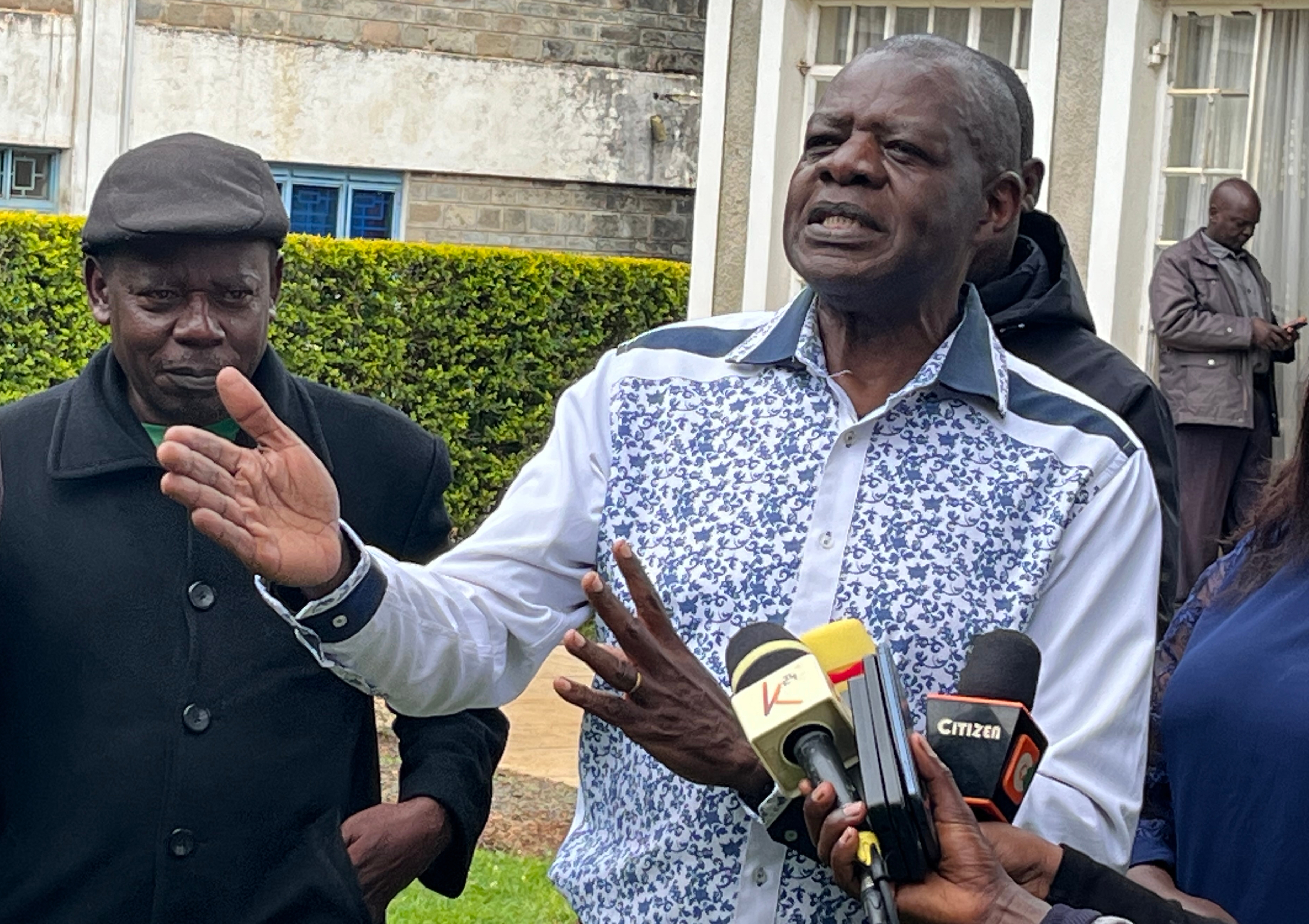
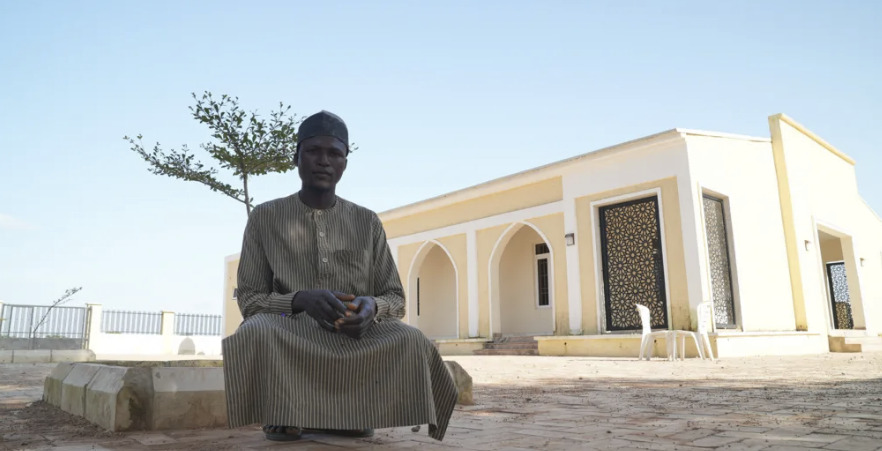
An Islamic school teacher, Masud Abdulrasheed, is struggling to come to terms with the killing of his seven-year-old daughter in drone strikes by Nigeria's military during a religious festival in their large but sparsely populated village exactly a year ago.
The military said the bombing was caused by "a failure of intelligence", leading the army to mistake the open-air festival in Tudunbiri for a gathering of jihadist fighters.
"The incident of December 3rd, 2023 was a great tragedy that shouldn’t have happened," military spokesman Maj-Gen Edward Buba told the BBC. "The armed forces regret that incident. And if we could bring the lives lost back, we would."
Warning: This story contains graphic details which some readers may find distressing
About 85 people were killed, including Mr Abdulrasheed's little daughter Habeebah, when unmanned drones dropped two bombs on the village in northern Kaduna state.
"The first bomb dropped on us at around 10 pm, close to a tree where women and children were seated," Mr Abdulrasheed recalled. "We ran for safety, but moments later we gathered to help those injured and also called for help, but the second bomb was dropped and it killed more people."
Mr Abdulrasheed described Habeebah as "the most caring among my children".
"She would always give me whatever gift she was given, even if I didn’t need it," he told the BBC.
The 36-year-old was one of the organisers of the annual festival, known as Maulud, held to celebrate the birth of Prophet Muhammad.
Many of his students were killed in the tragedy.
"We saw dead bodies all over the place as if they were sleeping. Body parts were strewn around the tree branches and rooftops. We had to pack them inside sacks and buried all the dead in a mass grave.
"There is nothing more devastating than seeing people you invited for a celebration coming to meet their end. I am so heartbroken," Mr Abdulrasheed said.
As the father of four spoke to the BBC, he sat his second daughter, Zaharau, beside him on a mat outside their home. He gently pulled up her top to show a wound on her stomach.
Kaduna state governor Uba Sani told the BBC that he would look into the plight of villagers like Ms Buhari.
"Thank you BBC for this information. I will personally go back to Tudunbiri, and if I find people that still need treatment, I will take care of it," he promised.
The occasion also marked the inauguration of a mosque the authorities have built for them over the bomb site, as a form of compensation.
In response, Maj-Gen Buba said that rights campaigners should "give us more credit for being more transparent, for working with the people, and for being more accountable for our actions, as was revealed particularly during the Tudunbiri incident".
"We will do everything possible to ensure that this never happens [again]," Maj-Gen Buba added.
He said that two army personnel were being court-martialled over the incident and while the case was still in progress, the military had redeployed them and relieved them of their command.
Both the federal and state government have also unveiled development projects for the village as part of efforts to show remorse for the deaths, with Sani telling the BBC that the construction of a hospital and skills acquisition centre was almost complete.
"We have been supporting the people of Tudunbiri, and we will continue to do that," he said.
"They are my people," the governor added.
But in a cruel irony, more than 20 people in the village reported that their farmland had been confiscated for the projects.
They include 50-year-old Hashim Abdullahi, who told the BBC: "I am not happy because this hospital has taken my means of livelihood and I was not compensated. I have been rendered jobless and can’t provide for my family."
In response, Sani said: "For the people that genuinely have land, the department of land in Kaduna is working with the head of the community to ensure that the right people are given their land back."
Nigeria's Vice-President Kashim Shettima also visited the village following the killings, promising - in conjunction with the state government - justice and financial compensation.
People were told they would receive 2.5 million naira ($1,500; £1,180) for each person killed in their family, while those injured were offered about 750,000 naira ($500).
"It is a difference that authorities actually carried out compensation this time around, but there is a sense that it has been very arbitrary," Ms Ewang said.
"We need to see the authorities take much-needed action towards justice, accountability, and compensation for victims in all of the other incidents of air strikes where they have accepted it was an error," she added.
Ms Buhari told the BBC that her family had received the 7.5 million naira for her three brothers who were killed, and she got 750,000 naira for her injuries - though this was not enough.
"I usually buy drugs at a pharmacy to dress the wound because that’s all I can afford to do now. The hospital doesn’t attend to us any more. Sometimes the pain would be very severe for weeks," she said.
"We hope the government will come to our aid again so that I can get proper care for my arm. I can’t wait to use it again," Ms Buhari added.
Mr Abdulrasheed told the BBC he had not received financial compensation for the injuries suffered by his four-year-old.
"I always feel worried when I look at her condition," he said.
He said he had received the full financial compensation for the death of his seven-year-old, but no amount of money could replace her.
"Every time I visit the grave site, I remember those we used to live together with but now they are no more. I miss them all. I miss my daughter."
Additional reporting by the BBC's Yusuf Akinpelu.


